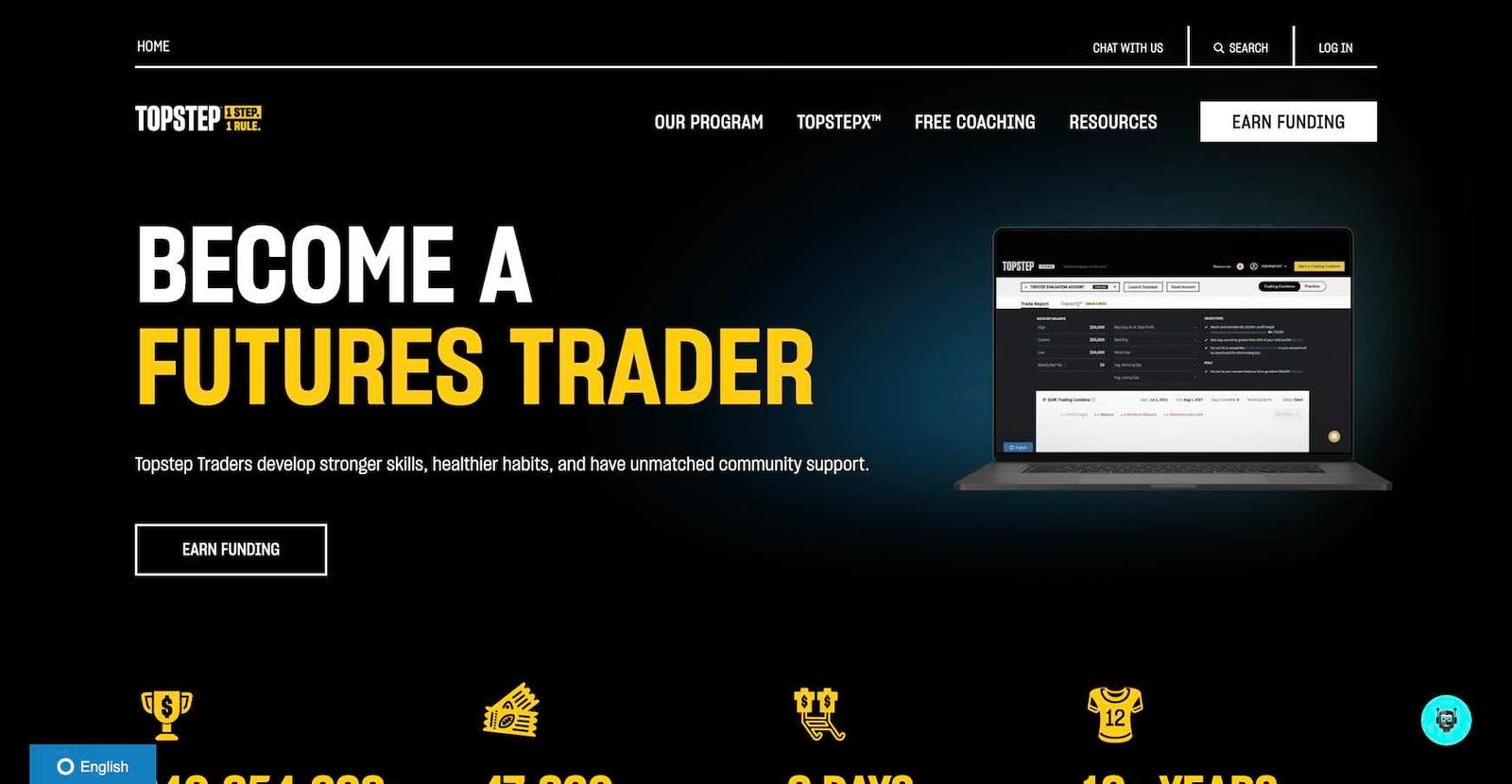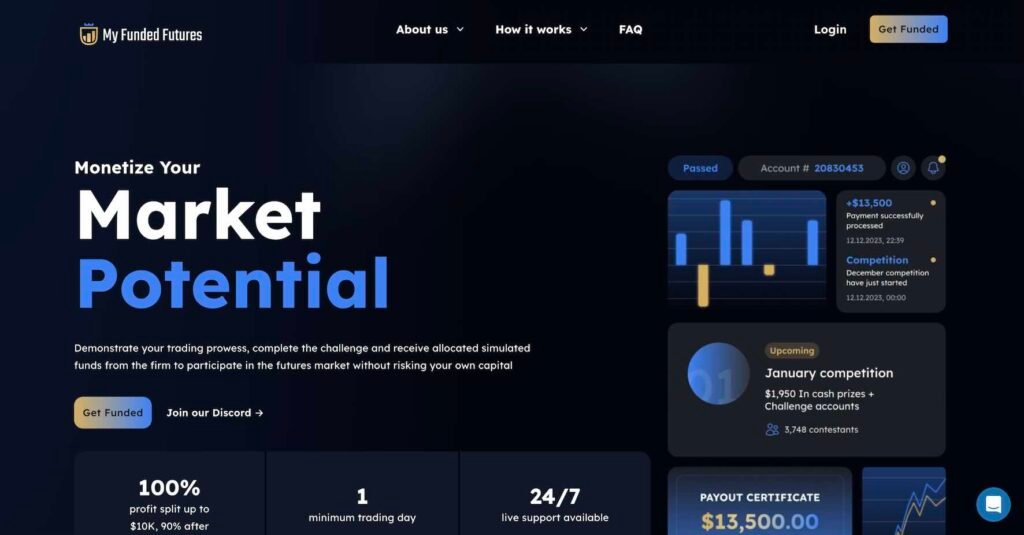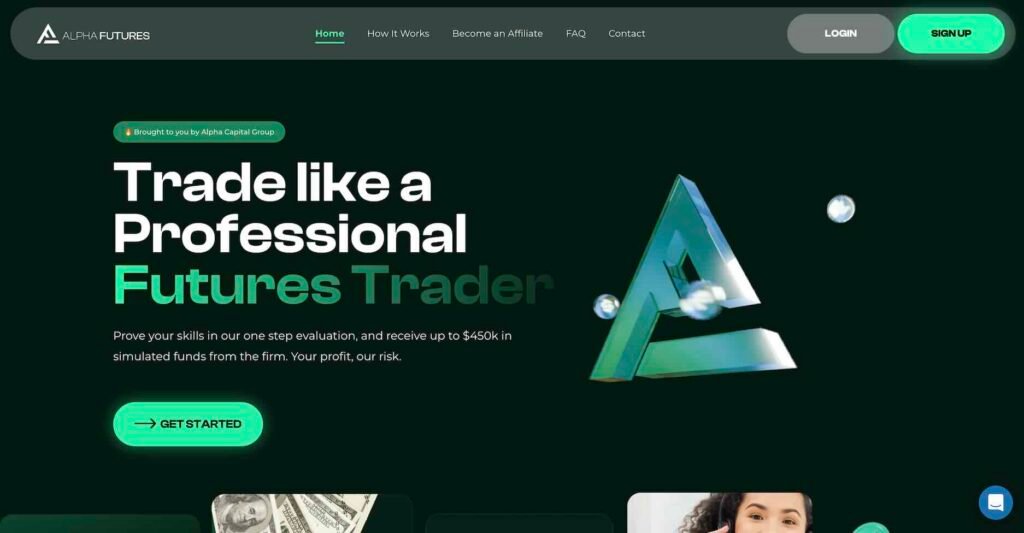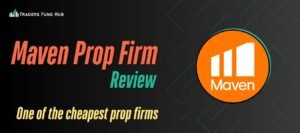Forex trading has always been attractive for retail traders worldwide and in the US. With forex being the biggest and most liquid market, this attraction is justified. Meanwhile, many American forex traders have turned to prop firms in recent years to increase their trading capital. However, both trading forex and using prop firms are tricky in the United States due to strict regulations. So, in this article, we will try to break down the situation surrounding forex prop firms in the US.
First, we present a quick overview of what prop firms are and how they actually work. Then, we will analyze forex prop firms in more depth and explain why using most forex prop firms in the US is either illegal or not allowed by the firms themselves. Yet, for American forex traders, we will introduce some of the best prop firms in the US.
- Forex prop firms provide traders with access to more capital through evaluation challenges. However, the funded accounts are mostly simulated.
- Most prop firms offer CFD trading, which is illegal for retail traders in the US due to regulations by the CFTC and SEC.
- Prop firms operating in the US must comply with regulations, making it difficult for forex-focused firms to serve US clients.
- Futures prop firms, such as TopStep, My Funded Futures, and Apex Trader Funding, are accessible to US traders as alternatives to CFD-based firms.
- These firms offer simulated accounts and funding opportunities but are not regulated by financial authorities, though they operate legally within the US.
What Is a Prop Firm?
A prop firm, also known as an evaluation or funding firm, is a company that grants traders access to more trading capital. Yet, in order to validate whether they deserve to have these additional funds, they evaluate traders using challenges. Usually, once you pass a prop firm challenge, you will gain access to a funded account, which you can trade on and split the potential profits with the prop firm itself at a predetermined ratio.
Many traders prepare for these challenges by studying trading ideas like the supply and demand strategies, price actions, Wyckoff pattern and other methods. These approaches help them understand how the market moves in different phases, which allows them to make better decisions during a challenge.
Now, to offset the risk they’re taking, prop firms put a cost on participating in a challenge. I mean, you should buy these prop firm challenges. Clearly, the more funds (the bigger the funded account) you want, the higher you should pay for the challenge.
How Do Prop Firms Actually Work?
A common misconception about Forex prop firms is that they actually grant you a real broker account with real funds. As you might already know, this is not the case. Most renowned prop firms like FTMO or FundedNext offer you a monetized demo account. So, your profits will not be real, but you will be paid by the firm. As a result, the business model of prop trading firms is not actually based on the profits you make but on the challenges you buy. We will get back to this later.
Read More: Are Prop Firm Passing Services Worth the Risk?
Forex Prop Firms and CFDs
Most of the forex trading done by retail traders around the world is through CFDs. In simple terms, a Contract for Difference (CFD) is a financial instrument that allows you to profit from the change in the price of an asset without actually owning it. So, for example, when you buy 1 lot of EUR/USD, you are actually buying a CFD instead of actual Euros.
Most forex brokers around the world offer forex trading through CFDs. Similarly, the majority of forex prop firms are also CFD prop firms. This is directly related to the fact that they have either partnered with a CFD broker or own one themselves.
Is CFD Trading Legal in the US?
Now, why did we go over the concept of CFDs? This is because CFD trading is not legal in the US (for retail traders). CFD trading is banned by the CFTC and the SEC in the US. If you don’t know already, the CFTC and the SEC are the primary regulatory bodies in the American financial markets.
The reason behind this limitation is that regulators believe CFDs are a high-risk financial product and are not suitable for retail traders. Therefore, only institutional investors or qualified market participants can trade CFDs, and they also can do it under specific conditions.
Are Prop Firms Legal in the US?
Forex prop firms in the US are in a somewhat grey area. The legality of these firms mainly depends on how they operate. The general concept of proprietary trading is legal in the US, with many proprietary trading firms operating in the country. However, the prop firms retail traders use are different.
All Forex Prop firms in the US or those offshore firms that want to serve US clients must be compliant with the existing regulations if they wish to operate without a problem. So, to skip these hassles altogether, there are not many forex prop firms in the US. Others also don’t serve US clients at all.
Why Are Most Forex Prop Firms Illegal in the US?
Now, surely, you want to know the reason behind all of these complications and why most forex prop firms don’t serve US clients. Well, there’s not a single one, but a set of conflicts with US regulations.
First and foremost, CFD trading is illegal in the US (as mentioned above). Therefore, the fact that most forex prop firms offer CFD trading rules them out of being able to provide their services to US traders.
Moreover, some prop firms offer substantially high leverages on their accounts. High leverage is not allowed in the US, as it contradicts the rules set by US regulators to protect retail traders.
Finally, we have the business model itself. Over the years, some prop firms refused to admit the fact that their funded accounts are actually demos, and the profits or losses are simulated. This has led to multiple controversies, including the My Forex Funds closure in 2023. Yet, since then, firms like FTMO have clearly admitted that they are using monetized demo accounts to prevent potential problems.
What Should US Forex Traders Do?
So, you might be asking what forex traders should do if they want to access prop firms. While there are some shady or illegal ways (which we clearly won’t discuss in this article), there are some Forex Prop Firms in the US that you can use.
These firms are mostly regulated within the United States, which means they mostly offer futures. So, the accessible forex prop firms in USA are the ones offering futures trading of currencies.
Best Forex Prop Firms in the US
Now that we have gone over both the issues and the solution of accessing Forex Prop Firms for US traders, here are some of the best, regulated prop firms in USA:
TopStep

Topstep is a futures prop trading firm. Yet, the system is the same as CFD prop firms, and traders should pass an evaluation phase to get funded. Yet, the funds are not real again, as the TopStep funded accounts are simulated.
While Topstep is a legitimate and transparent company, it is not regulated by financial authorities. Yet, since it doesn’t manage real money or offer brokerage services, TopStep is legal in the US and, in fact, is one of the most popular prop firms that accept us clients. Read more about this platform on our article about “Topstep Review 2025“.
My Funded Futures

The second prop firm we introduce for US traders is MyFundedFutures. Once again, the model is similar, and you will get funded once you prove your profitability and pass the evaluation phase. MyFundedFutures also offers simulated funded accounts, so you won’t trade real money even after you become funded.
MyFundedFutures operates legally in the US. But then again, it is not regulated by financial regulators like the SEC or CFTC. The reason is because it does not function as a broker or manage real funds. Instead, it offers virtual evaluations and funded accounts within the legal boundaries for prop firms.
Apex Trader Funding

As one of the best futures prop firms in the US, Apex Trader Funding allows traders to trade futures, indices, commodities, and cryptocurrencies. The prop firm offers two different plans, the Rithmic plan and the Tradovate plan. Yet, the evaluation for both plans is only one phase. With ATF, traders can receive up to $300,000 in funding. You can also receive 100% of the first $25,000 profits per account and 90% Beyond That. There will also be two payouts per month, and interestingly, there’s no daily drawdown rule, but there’s a consistency rule.
Apex Trader Funding operates legally in the US, but like other prop firms, it is not regulated by financial authorities since it does not act as a broker or manage client funds. Meanwhile, it is widely considered a legitimate prop firm with a strong track record.
Alpha Futures

Alpha Futures is a prop trading firm based in London. Once again, it is a futures prop firm, and users can trade futures contracts after passing a one-step evaluation. The firm’s max allocation is $450,000 in funding for traders who meet profit targets without violating any rules. Notably, there’s a Daily Loss Guard, which limits daily losses to 2% of the account balance. The firm also prohibits the use of high-frequency trading bots. Once funded with Alpha Futures, you can retain up to 90% of your profits.
Alpha Futures is a legal and transparent prop firm. Yet again, financial authorities do not regulate Alpha futures since it only offers simulated trading accounts. Moreover, traders can use the AlphaTicks platform for futures trading, which includes charting tools like TradingView.
Earn2Trade

Our final entry is Earn2Trade, which is another top candidate among the prop firms in the US. Its evaluation challenges consist of two different paths, the “Gauntlet Mini” and the “Trader Career Path.” Both these models test traders’ skills in simulated accounts. If you pass the Earn2Trade challenge, you can receive up to $400,000 in funding and keep 80% of the profits.
Earn2Trade is not directly regulated by financial authorities. However, it works with regulated and reputable brokers. Therefore, it is known as a legitimate prop firm in the futures prop trading space.
Conclusion
In this article, we’ve analyzed whether there are any legal forex prop firms in the US. While CFD prop firms cannot operate in the US or serve American citizens, US-based traders can use futures prop firms as a substitute.
Some regulated prop firms in USA include TopStep, My Funded Futures, and Apex Trader Funding. While these are all reputable and legitimate firms, remember, none of them are regulated by the authorities. So, before purchasing a challenge, make sure to do your research to find the most suitable prop firms in the US for you.
Thankfully, at Traders Fund Hub, we make the process of finding legitimate and suitable prop firms easier. Subscribe to our newsletter to receive the latest insights, which include prop firm and platform reviews, news and updates, and also the latest discounts and promotions in the prop firm industry.




